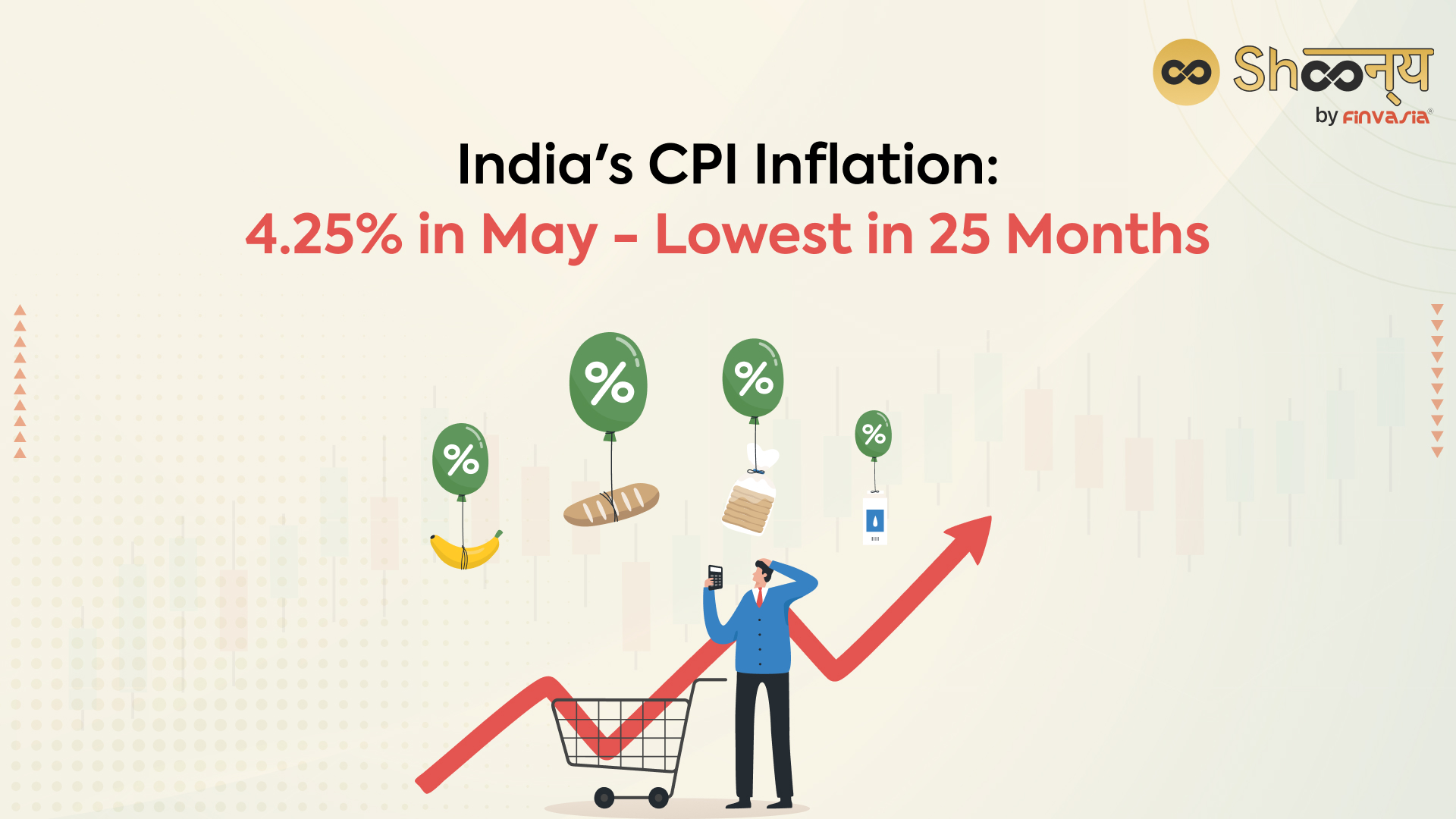India’s CPI Inflation: 4.25% in May – Lowest in 25 Months

India witnessed a significant decline in its Consumer Price Index (CPI) inflation, with the rate dropping to 4.25% in May. This marks the lowest inflation rate in the past 25 months, highlighting a positive trend in the country’s economic growth environment.
Let’s explore the key factors and implications surrounding this noteworthy decrease.
Key Takeaways
- In May, retail inflation in India reached a low of 4.25%, the lowest in the past 25 months.
- Lower CPI inflation signifies a relatively stable or declining price level, which can contribute to economic stability, improved living standards, and enhanced investor confidence.
- The decline in retail inflation is mainly due to the favourable base effect, not a loss of inflationary momentum in monthly comparisons.
- Different categories within the inflation basket showed mixed trends, with some food items experiencing price surges while others saw declines.
- Core inflation, which omits volatile food and fuel items, decreased to 5% in May. This aligns with the RBI’s decision to maintain the repo rate at 6.5% for the second consecutive meeting.
- The RBI revised its inflation forecast, lowering it for 2023-24 and April-June, considering factors like monsoon patterns and crude oil prices.
Understanding CPI (Consumer Price Index) Inflation
(CPI) inflation measures the average price change of a basket of goods and services consumed by households. CPI report defines the data and reflects the purchasing power of consumers, and is a crucial indicator of price stability in an economy.
A higher CPI inflation rate indicates rising prices and a decrease in the value of money over time. On the other hand, lower CPI inflation signifies a relatively stable or declining price level, which can contribute to economic stability, improved living standards, and enhanced investor confidence.
Exploring India’s Inflation CPI Data: May 2023
Lowest Inflation Rate in Over Two Years
In May 2023, retail inflation in India experienced a consistent downward trend, reaching 4.25%. This decline follows four consecutive months of decreasing inflation, according to the data released by the Ministry of Statistics and Programme Implementation on June 12.
Favourable Base Effect Behind the Decrease
The primary reason behind the sharp decline in inflation is attributed to the favourable base effect. Notably, the decline in inflation is primarily due to the favourable base effect rather than a loss of inflationary momentum on a month-to-month basis.
This means that the current inflation rate appears potentially lower when compared to a higher inflation rate in the corresponding period of the previous year, giving the impression of a decline in retail inflation in India.
Inflation Internals and Price Movements
Examining specific categories within the inflation basket, the report highlights mixed trends. While certain food items such as vegetables, meat, and fish experienced price surges, others, including edible oils, fruits, and cereals, witnessed price declines.
Core Inflation and Monetary Policy Implications
Core inflation, which excludes the volatile food and fuel items, declined again in May, dropping to 5% from 5.2% in April. This latest inflation reading is of particular significance, as it aligns with the recent decision of the Reserve Bank of India’s (RBI) Monetary Policy Committee (MPC) to maintain the repo rate at 6.5% for the second consecutive meeting .
RBI’s Inflation Forecasts and Outlook
In its statement on June 8, the MPC revealed that the RBI revised its inflation forecast for 2023-24, lowering it by 10 basis points to 5.1% and by a significant 50 basis points to 4.6% for April-June. While inflation is expected to rise in the coming months, uncertainties surrounding factors such as monsoon patterns and crude oil prices may influence the course.
Implications for Indian Stock Market Investors
The decline in India’s CPI inflation to 4.25% in May has significant implications for Indian stock market investors. Lower inflation generally indicates a stable economic environment, which can positively impact corporate earnings and investor sentiment. It reduces the pressure on the central bank to tighten monetary policy, which is favourable for businesses and can potentially lead to lower interest rates. With improved economic conditions and increased consumer spending power, sectors such as consumer goods, retail, and hospitality may experience growth, offering potential investment opportunities for stock market investors.
Sources: moneycontrol.com
Disclaimer: Investments in the securities market are subject to market risks, read all the related documents carefully before investing.








